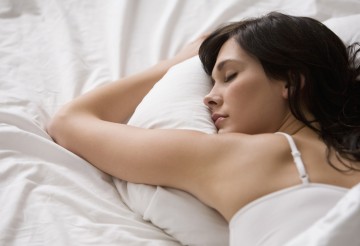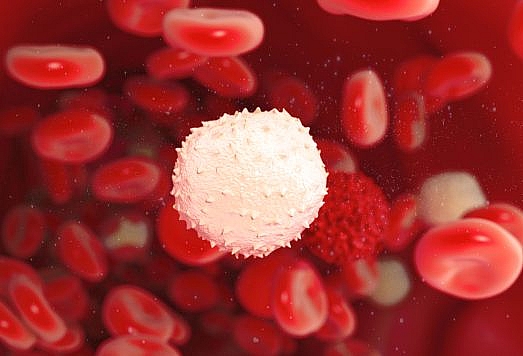Biology of Sleep
Light is of key importance in regulating sleep and the production of sleep hormone melatonin. The circadian clock coordinates biology and behaviour of humans with daily environmental changes in the day-night cycle. During daytime light inhibits photosensitive cells in the suprachiasmatic nucleus in the hypothalamus (part of the brain) preventing signalling to the pineal gland, thereby preventing production of melatonin which is the key substance in induction of sleep. When light in the environment starts to decrease, the photosensitive cells in the suprachiasmatic nucleus in the hypothalamus are activated and signal via the superior cervical ganglion to the pineal gland, which produces melatonin. Melatonin is synthesized from the amino acid tryptophan, which is an essential amino acid i.e. an amino acid that cannot be synthesized de novo, but is solely derived from nutrition. Tryptophan is also the source for synthesis of serotonin and from serotonin, melatonin is eventually made. To ensure a good mood and sleep, it is important to include sufficient amounts of tryptophan in your diet, which is present in high amounts in protein-rich food: oat, bananas, dried prunes, milk, tuna, cheese, poultry, bread and some seeds. The recommended daily intake of tryptophan ranges from 250 to 425 mg.
Insomnia and its effects
A sufficient amount of sleep is important for many body functions. Insufficient sleep leads to insufficient activation of the glymphatic system, a clearance system for the central nervous system, which is ten times more active during sleep. Hence, insufficient sleep leads to deterioration of neuron quality. Furthermore, plaque formation is increased with insomnia, since faulty proteins are not cleared sufficiently, which eventually can lead to memory loss and Alzheimer’s disease. Other detrimental effects include less focus, increased risk of accidents and increased ageing. Furthermore, the chance of developing anxiety, depression and schizophrenia are increased when suffering from insomnia.
How To Cope With Insomnia
Insomnia can be caused by many factors. It can be due to a plethora of psychological problems e.g. divorce, unemployment, poverty, smoking and drug/alcohol abuse. Cognitive behavioural therapy can help in resolving insomnia.
Caffeine increases chance of developing insomnia, since it binds to adenosine receptors, and prevents binding of adenosine, which normally slows down neuronal activity and induces sleep. Adenosine is responsible for dilating blood vessels and in this way makes sure good oxygenation is present during sleep. Decreasing/eliminating caffeine intake can help resolve insomnia.
In the evening exposure to light should be diminished, since this affects melatonin production negatively and increases the time to fall asleep plus decreases sleep quality and length. Therefore usage of screens (mobile, TV, laptops etc.) should be diminished/avoided before sleeping.
Breathing exercises and meditation are an excellent way to sleep like a prince/princess, since these practices have been scientifically proven to increase melatonin production!
For more detailed scientifically substantiated advice on healthy sleeping techniques and tricks, contact Vedanta Wellbeing PhD.









